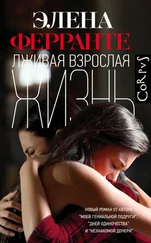Just seeing Giuliana from a distance depressed me, though. She was tall, harmonious in her movements, she came toward me radiating confidence and pride. It was as if the composure I’d noticed earlier in church had spread into her clothes, her shoes, her gait, and now seemed innate. She greeted me with a cheerful chattiness to put me at my ease, and we walked without a destination. We passed the museum, and turned uphill onto Via Santa Teresa; I was at a loss for words, overwhelmed by how her extreme thinness, her light makeup, gave her a sort of ascetic beauty that instilled respect.
Here, I thought, is what Roberto has done: he has transformed a girl from a poor neighborhood into a young woman you’d find in a poem. At one point, I exclaimed:
“You’ve really changed, you look even more beautiful than when I saw you in church.”
“Thank you.”
“It must be love,” I ventured, it was a phrase I’d often heard from Costanza, from my mother.
She laughed, denied it, said:
“If by love you mean Roberto, no, it’s not about Roberto.”
She herself had felt the need to change and had made a great effort that was ongoing. First, she tried to explain in general terms the urge to please those we respect, those we love, but then, step by step, the attempt to express herself in the abstract got tangled up, and she went on to tell me that Roberto liked everything about her, whether she stayed the same as she had always been since childhood, or whether she changed. He imposed nothing, hair like this, dress like that, nothing.
“You,” she said, “I feel you’re worried, you think he’s one of those types who are always at their books and intimidate you and lay down the law. He’s not like that, I remember him as a child, he wasn’t someone who studied a lot, in fact he never studied the way those scholars study. You always saw him on the street playing ball, he learns distractedly, he’s always done ten things at once. He’s like an animal that can’t distinguish between good things and poisonous ones, everything is fine with him, because—I’ve seen it—he transforms every element just by touching it and in a way that leaves you amazed.”
“Maybe he also does that with people.”
She laughed, a nervous laugh.
“Yes, good for you, also with people. Let’s say that, being near him, I felt and feel the need to change. Naturally, the first to notice that I was changing was Vittoria, she can’t bear it if we don’t depend on her in every way, and she got angry, she said I was getting foolish, I wasn’t eating and was turning into a broomstick. But my mother’s glad, she’d like me to change even more and Tonino to change, and Corrado. One night she said to me secretly, so Vittoria wouldn’t hear: when you go to Milan with Roberto, take your brothers, don’t stay here, no good can come of it. But nothing escapes Vittoria, Giannì, she hears even what’s said in a low voice or isn’t even said. So instead of getting mad at my mother, the last time Roberto came to Pascone she confronted him and said: you were born in these houses, you grew up on these streets, Milan came later, it’s here you have to return. He listened to her, as always—he’s the kind of person who listens even to leaves in the wind—and then he said something tactful about accounts that should never be left open, and added that in the meantime, however, he had some to close in Milan. He’s like that: he listens to you, and then he goes his own way, or anyway all the ways that interest him, maybe even including the path that you suggest to him.”
“So you’ll get married and live in Milan?”
“Yes.”
“And then Roberto will quarrel with Vittoria?”
“No: I will break with Vittoria, Tonino will break with her, Corrado will break with her. But not Roberto, Roberto does what he has to do and doesn’t break with anyone.”
She admired him, what she most liked about him was his benevolent determination. I felt that she relied on him completely, considered him her savior, who would get her away from her place of birth, her insufficient schooling, the frailty of her mother, the power of my aunt. I asked her if she went to Milan to see Roberto often and she darkened, she said it was complicated, Vittoria didn’t want her to. She’d been three or four times and only because Tonino had gone with her, those few stays had been enough to make her love the city. Roberto had lots of friends, some very important. He insisted on introducing her to all of them and took her everywhere, to this one’s house, to an appointment with that one. It was all wonderful, but she also felt very anxious. After those experiences, her heart wouldn’t stop racing. On every occasion she wondered why Roberto had chosen her, who was stupid and ignorant, and didn’t know how to dress, when Milan had the cream of the crop of extraordinary young women. And also in Naples, she said, you, you’re a proper girl. Not to mention Angela, she expresses herself so well, she’s pretty, she’s elegant. But me? what am I, what do I have to do with him?
I felt pleasure in the superiority she was attributing to me, yet I told her it was nonsense. Angela and I talked the way our parents had brought us up, and our mothers chose our clothes, or anyway we chose them according to their taste, which we thought was ours. The fact was, rather, that Roberto had wanted her and only her, because he was in love with what she was, so he would never trade her for other women. You’re so pretty, so vivacious, I exclaimed, the rest can be learned, you’re already learning it: I’ll help you if you want, so will Angela, we’ll help you.
We turned back, I walked with her to the metro at Piazza Cavour.
“You mustn’t feel embarrassed with Roberto,” she repeated, “really, he’s very down to earth, you’ll see.”
We embraced, I was glad about the friendship that was starting. But I also discovered that I was on Vittoria’s side. I wanted Roberto to leave Milan, to settle in Naples. I wanted my aunt to prevail and compel the future spouses to live in, I don’t know, Pascone, so that I could weld my life to theirs and see them when I wanted, even every day.
16.
I made a mistake: I told Angela that I had seen Giuliana and was going to see Roberto soon, too. She didn’t like that. She who had spoken ill of Tonino and well of Giuliana abruptly changed her mind: she said that Tonino was a good guy and that his sister was a harpy and tormented him. It didn’t take much to figure out that she was jealous: she couldn’t bear that Giuliana had talked to me without going through her.
“Better not to see her anymore,” she said one evening when we went out for a walk. “She’s grown up and treats us like little girls.”
“That’s not true.”
“Yes, it is. At first, with me, she pretended that I was the teacher and she the student. She clung to me, she said: how nice, if you marry Tonino we’ll be related. But she’s a phony. She ingratiates her way in, she acts like a friend, and instead she’s looking after her own interests. Now she’s focused on you, I’m not enough for her anymore. She’s used me and thrown me aside.”
“Don’t exaggerate. She’s a nice girl, she can be your friend as much as mine.”
I had to work hard to soothe her, and I didn’t completely succeed. As we talked I realized she wanted many things at the same time, and that kept her in a permanent state of dissatisfaction. She wanted to end it with Tonino but not with Giuliana, whom she was fond of; she didn’t want Giuliana to be attached to me, excluding her; she didn’t want Roberto to disturb, even as a ghost, our eventual close trio; she wanted me, even as part of that eventual trio, to have her at the front of my mind and not the other. Finally, since I wouldn’t agree, she stopped being malicious about Giuliana and began to talk about her as a victim of her fiancé.
Читать дальше
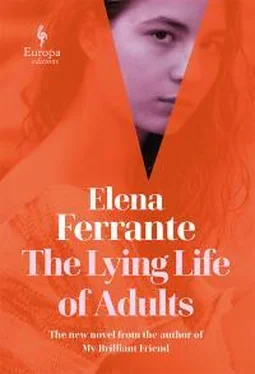
![Элена Ферранте - История о пропавшем ребенке [litres]](/books/32091/elena-ferrante-istoriya-o-propavshem-rebenke-litres-thumb.webp)
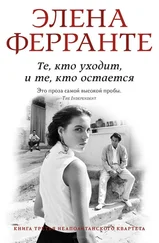
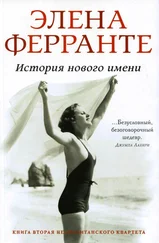
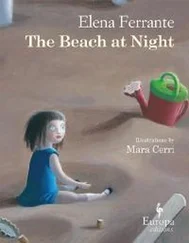
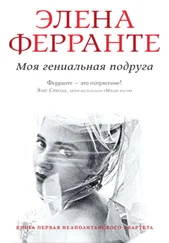
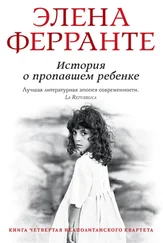
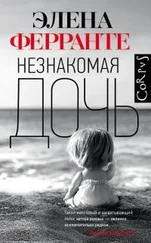
![Элена Ферранте - Дни одиночества [litres]](/books/404671/elena-ferrante-dni-odinochestva-litres-thumb.webp)

